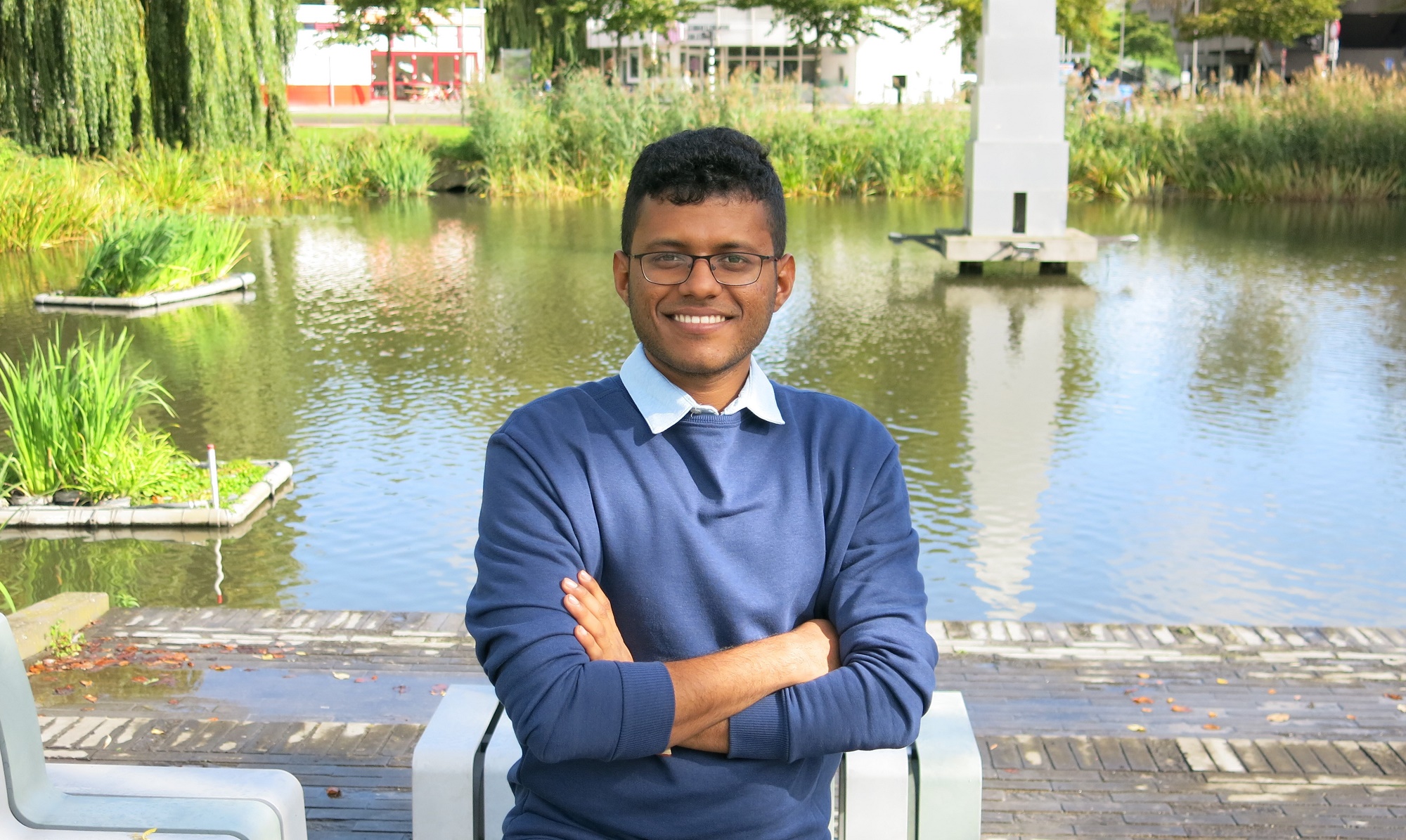Master’s student Shreyas Prakash is helping children effect social change in their own communities.
Shreyas Prakash: “Skills and learning should be used for social impact.” (Photo: Heather Montague)
“During my bachelor’s I had this idea that skills and learning should be used for social impact. That sent me on a journey of exploring. Since graduating in 2016, I’ve been soul searching, trying to volunteer with NGOs, especially in the development sector. I was born and brought up in a city, so I had never lived in a village. I wanted to understand what it means to be in a village and what problems the people face. That led me to do a fellowship and I had this idea of how we can involve children in a better way, how we can develop leadership skills in them in such a way that it creates an impact on their lives.
During that journey I really learned to understand the power of design. It’s not just the way you deal with things, but it brings a shift in your mindset, trying to empathise with the person you are doing something for. I felt like I could really connect with what design means, especially in the rural context. Now there are three of us running this organisation back in India called the Lead by Design Foundation and we’re really trying to connect the theory and the practice. We see a lot of progress in terms of research, but can we really apply that in practice?
‘He solved the problem for his parents’
In this one village there was a child who identified a problem that his own mother faced. In a village you have mud stoves that are used for cooking, they don’t have gas. They use wood to burn as fuel. This boy saw his mother coughing regularly and her eyes were sore because of the smoke. He had an idea that maybe he could design something. We are more like facilitators and don’t want to tell people how to do things. We probe and ask the right questions so that they come to the answer on their own. The child was able to get scrap materials from local hardware shops and he created a smoke-free mud stove on his own.
But it didn’t stop there. He solved the problem for his parents and they were really proud of him. They started spreading the word and others who had similar problems started asking if he could make one for them. So, the family got together and set up a business. They have sold a lot of the innovation they made, even reaching other villages. This is how social impact can happen when children are involved. It starts with empathy, connecting with the problem, and then you work backwards to learn whatever you can to solve it. We feel this makes much more of a learning impact for children.”
- To follow Lead by Design Foundation’s projects, visit their Facebook page.
Who are the people who work and study on campus? We meet them in Humans of TU Delft where they talk about their work or other activities. Do you know someone with a good story to tell? Send us an e-mail at humansoftudelft@gmail.com
Heather Montague / Freelance writer



Comments are closed.